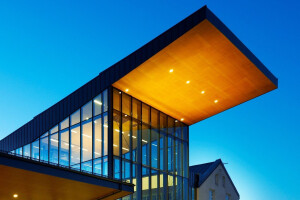Lidl’s store in Visby, Gotland, is Sweden’s first zero-carbon-certified building, recognized as a significant pilot project for the Zero CO₂ certification by the Sweden Green Building Council. The project is a collaboration between Lidl and LINK Arkitektur that adheres to sustainable principles and also meets BREEAM-SE Excellent standards.
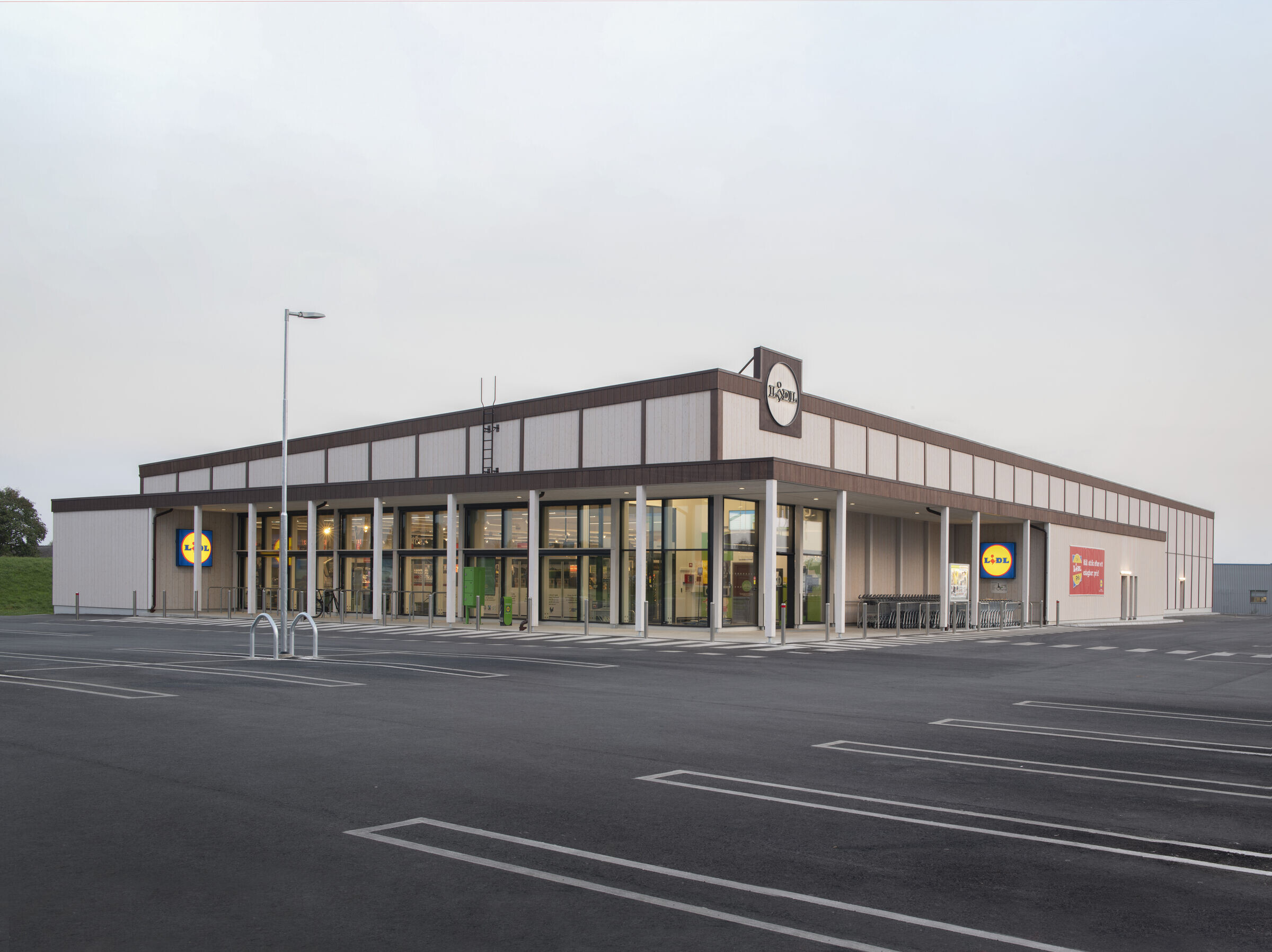
A holistic approach to zero-carbon retail
This transformative project achieved net-zero carbon emissions across the building's entire lifecycle, from material production to demolition. This was aided by an extensive use of timber, including wood panels, beams, and roofing. Lidl Visby operates with net-zero emissions, achieving energy neutrality through a combination of passive design, efficient systems, and robust on-site renewables.
Optimized building volume
The store's compact and optimized building volume reduces the surface area exposed to external temperatures, inherently lowering heating and cooling demands. This is further enhanced by thoughtful adaptations to the building's facades, careful consideration of glass surface area, effective insulation, and strategic solar shading to minimize heat loss and solar gain.
Natural refrigerants and heat recovery
The store utilizes natural refrigerants in its cooling systems to minimize global warming potential. Recognizing the energy-intensive nature of grocery stores, a strong emphasis is placed on waste heat reuse. Heat recovery systems capture waste heat generated by refrigeration and other equipment, redirecting it for use in heating the building or other purposes.
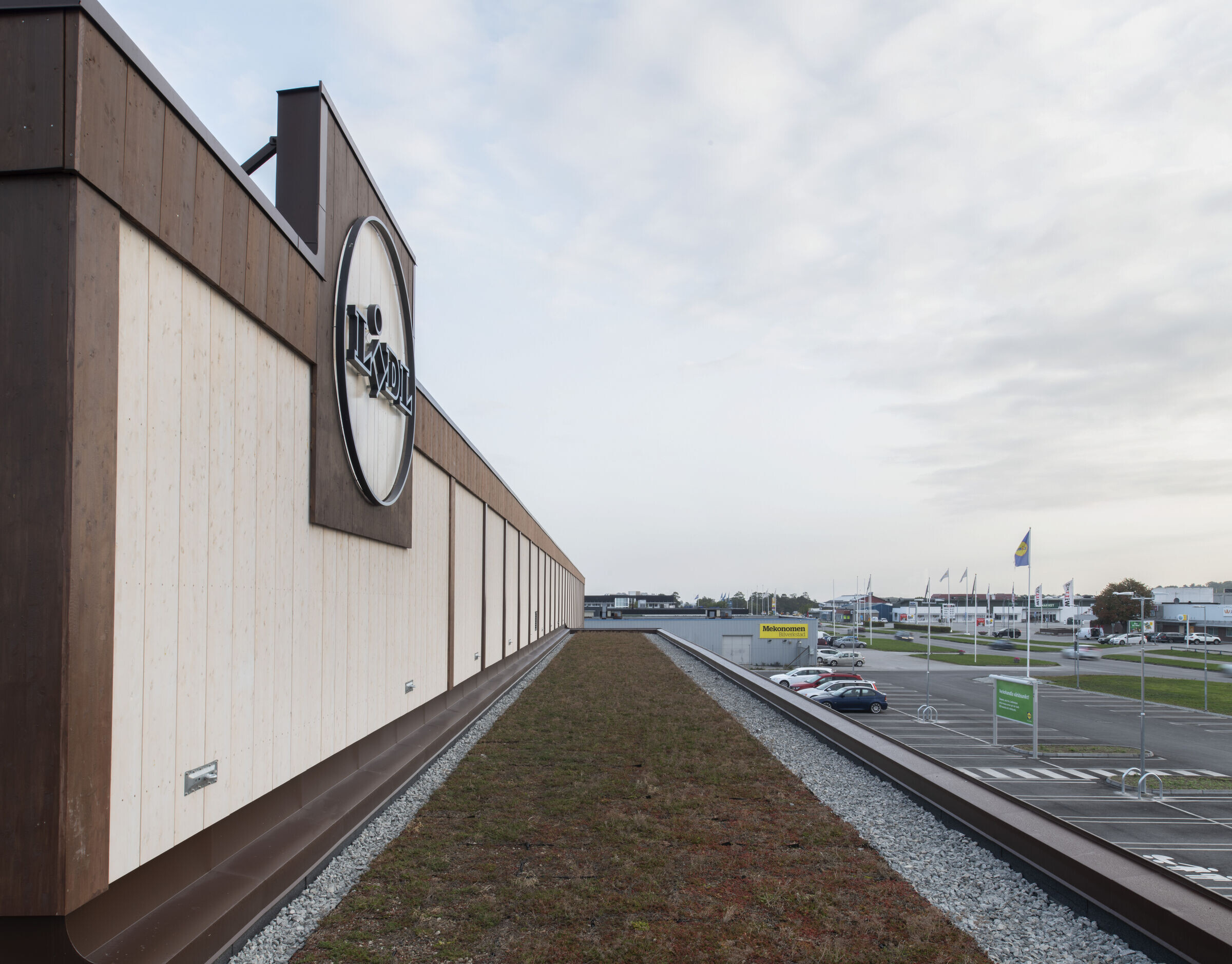
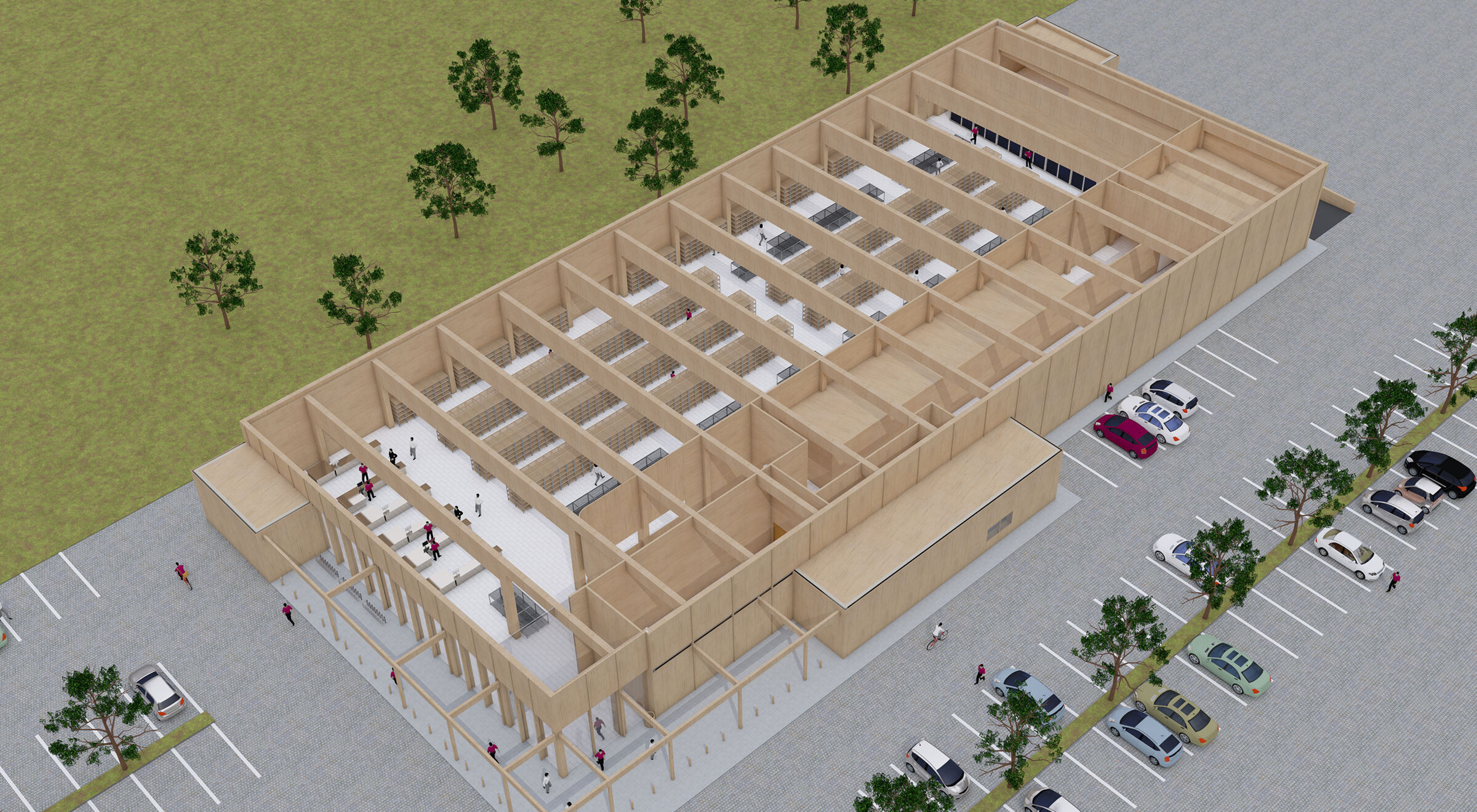
On-site renewable energy generation
A comprehensive solar cell system is strategically integrated into the roof of the store and a nearby warehouse. This system is designed to generate approximately one million kilowatt-hours of electricity per year, significantly offsetting the store's remaining emissions and reducing its dependence on the electrical grid.
Biodiversity integration
The project also actively enhances biodiversity through innovative design elements. One key feature is the green roof, which is covered in sedum and living vegetation. This not only provides insulation and reduces stormwater runoff but also plays a vital role in promoting biodiversity. Additionally, the surrounding landscape incorporates thoughtfully designed ecozones and planting areas, which further support local biodiversity while creating an aesthetically pleasing environment.
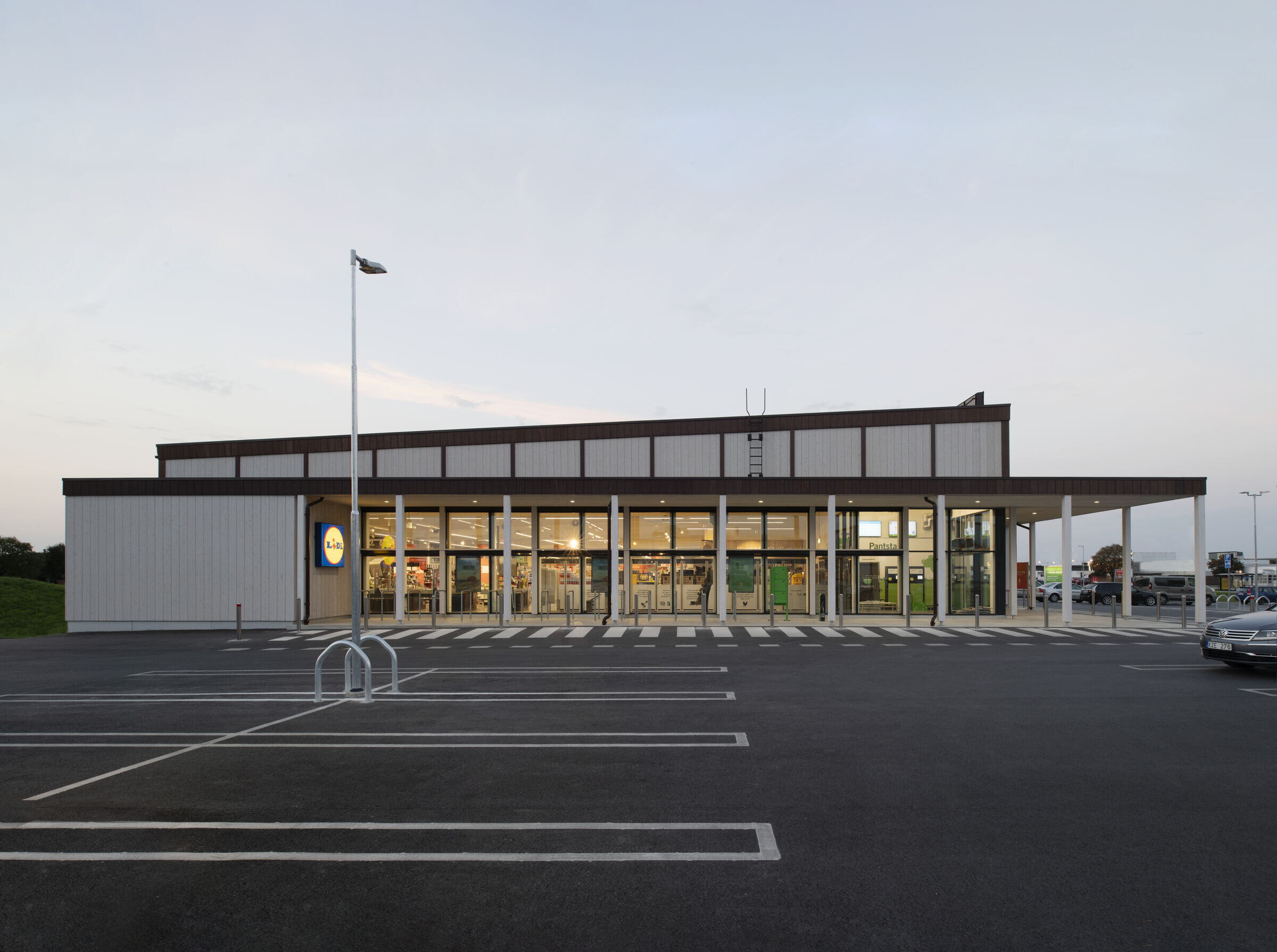
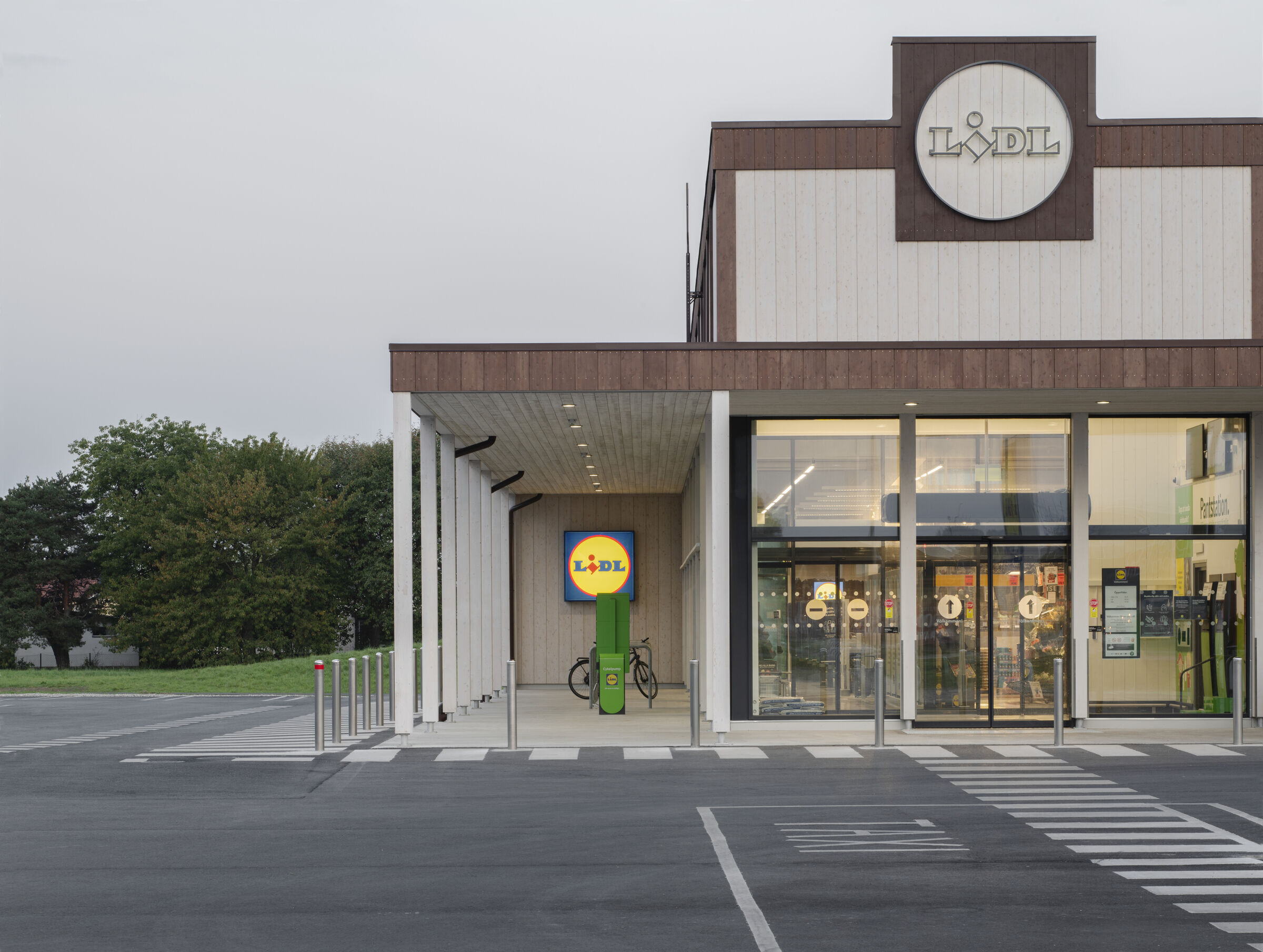
The Sweden Green Building Council and the industry have developed a highly demanding certification for climate-neutral buildings to enable Sweden to achieve its climate goals. When Lidl established itself on Gotland, the store building became a pilot project for the new certification. The project also won Construction of the Year 2021 (Årets Bygge), in the industry category.





